Mae Nam Ping Kayak Tour 2022
Day 5: Kayaking to Raft Southeast of Samong Village
15 January Southeast of Samong Village (22 kilometers paddling)
One of
the folding kayaks belonged to Jai and Chat, and Chris packed it up and left it
on their raft. That meant one of us kayakers could take a ride in the speedboat,
and David jumped at the chance. He hadn’t enjoyed the paddling part of the trip
that much, and the 4 kilometers per hour on the water could be tedious compared
to cycling. Today began with a paddle southeast into the sun, then south in a
narrower section with shady parts to Tham Yogi, a cave temple on the hillside at
the 11-kilometer point. Even from far away we could see the large statues of a
golden seated Buddha, a white standing Guanyin, and a white Budai (laughing
monk). Closer in,
we could also spot a large reclining Buddha. A supply boat had just arrived at
the temple dock, and we helped carry bottled water and other goods to the waiting
motorcycle trailer that plied the steep concrete path to the temple. A modest
cave entrance led to a wonderland of cave features, some in brilliant
white—terraces, flowstones, columns, stalactites, and stalagmites. A bat colony
on the ceiling seemed unperturbed as we walked underneath. The cave became
increasingly hot and humid until the end about 200 meters in.
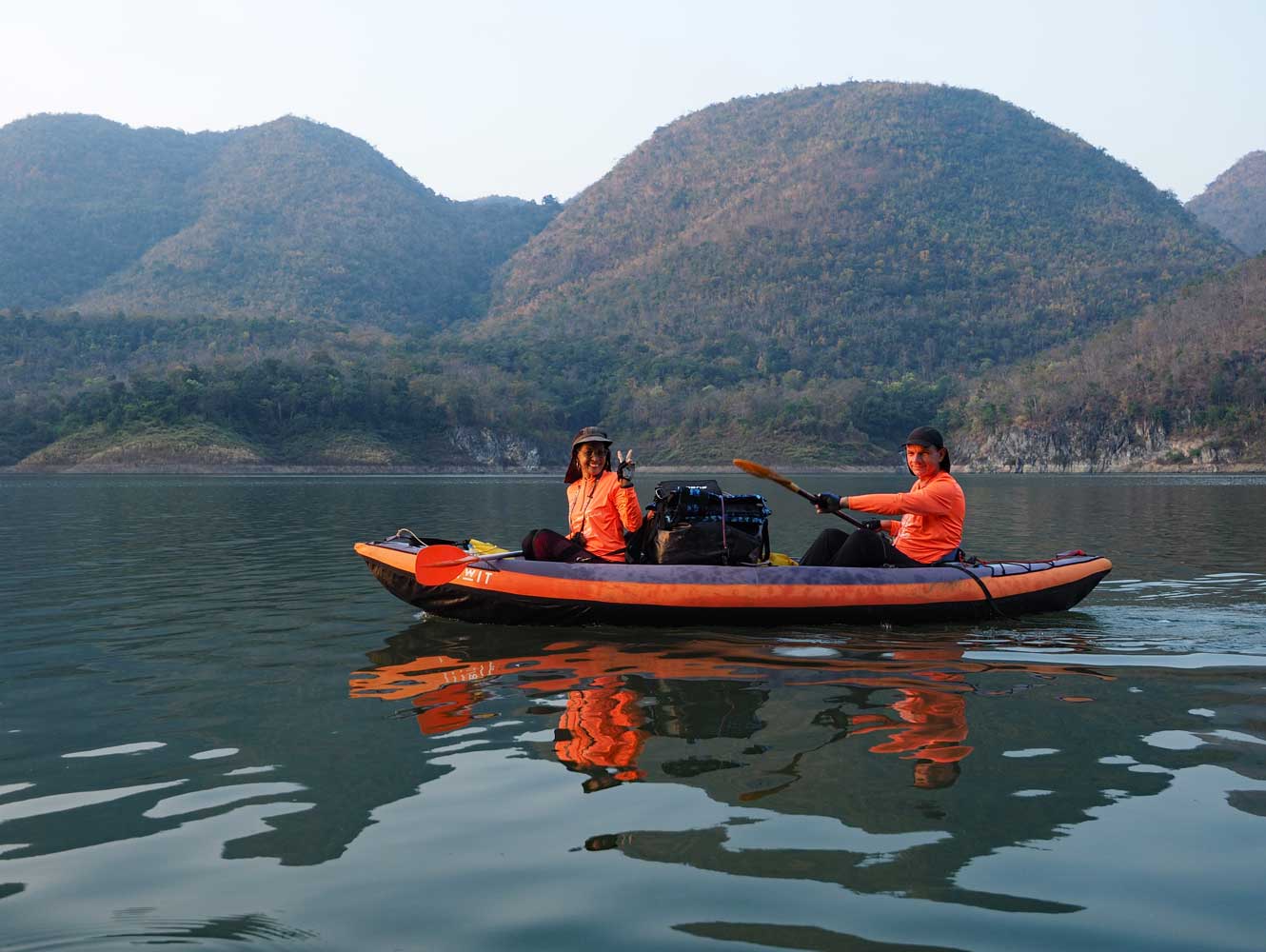
Areeya and Chris
get a cheery start!
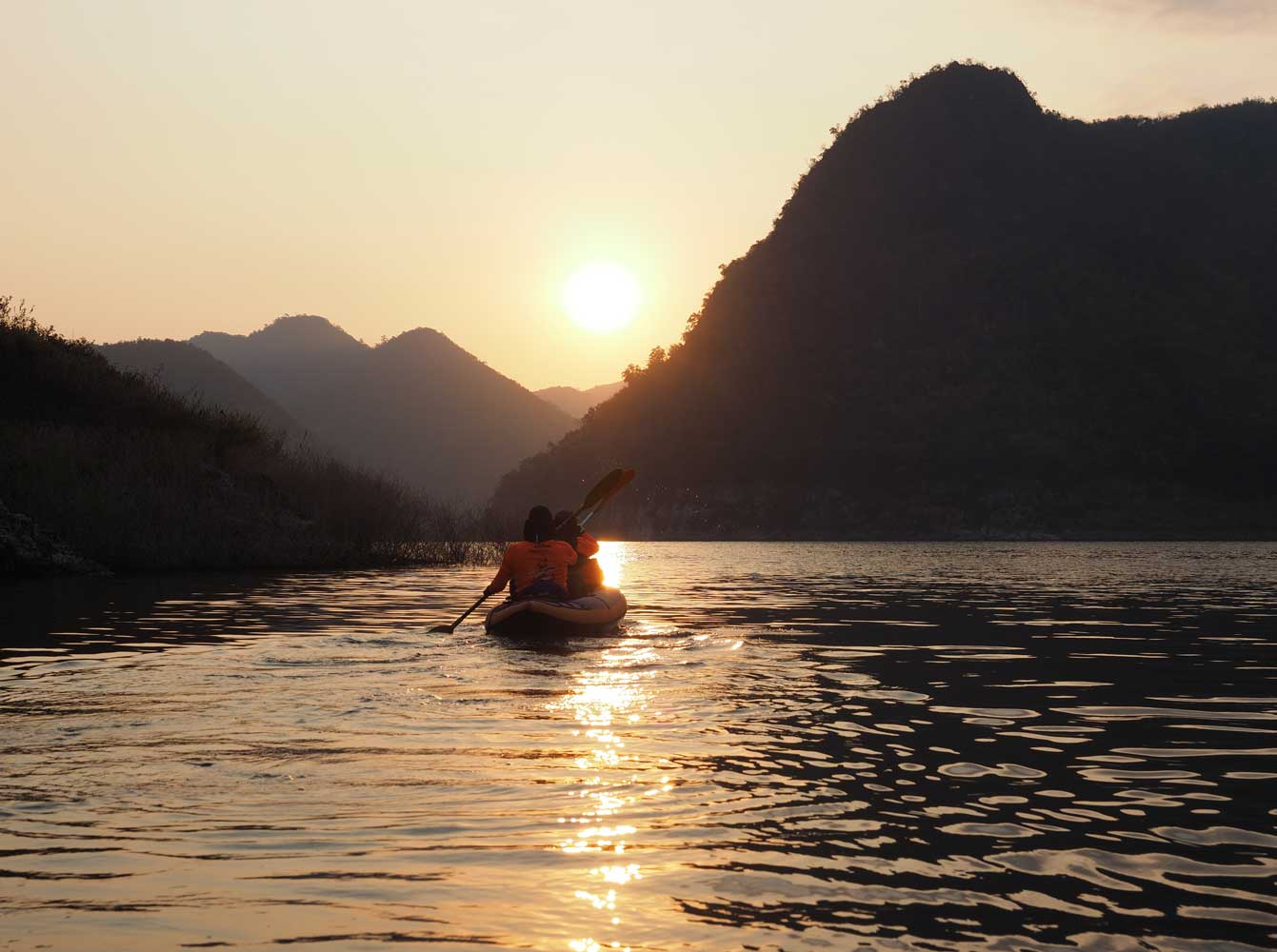
As they ride off
into the sunrise.
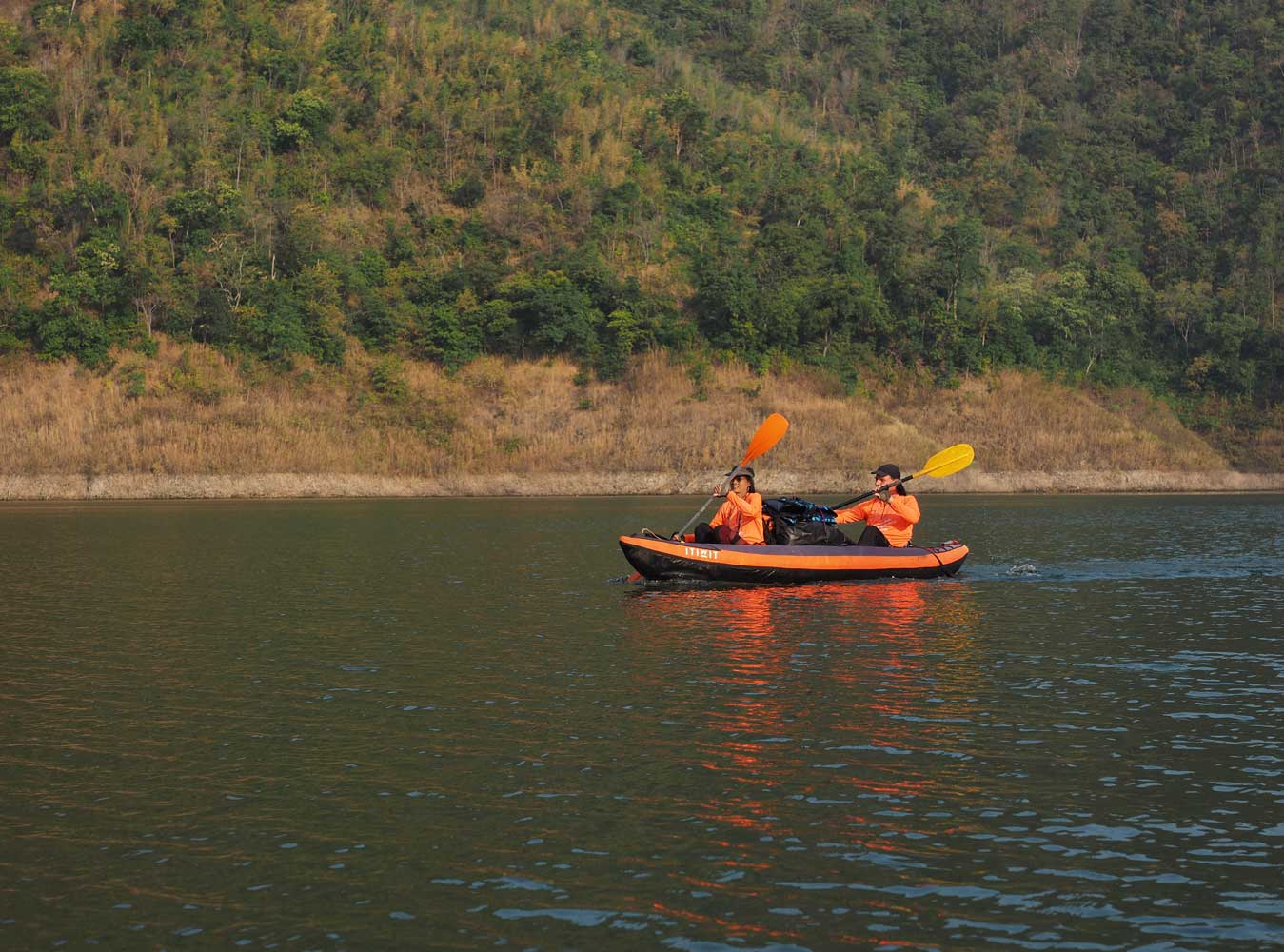
They have the best
paddling technique of our group.
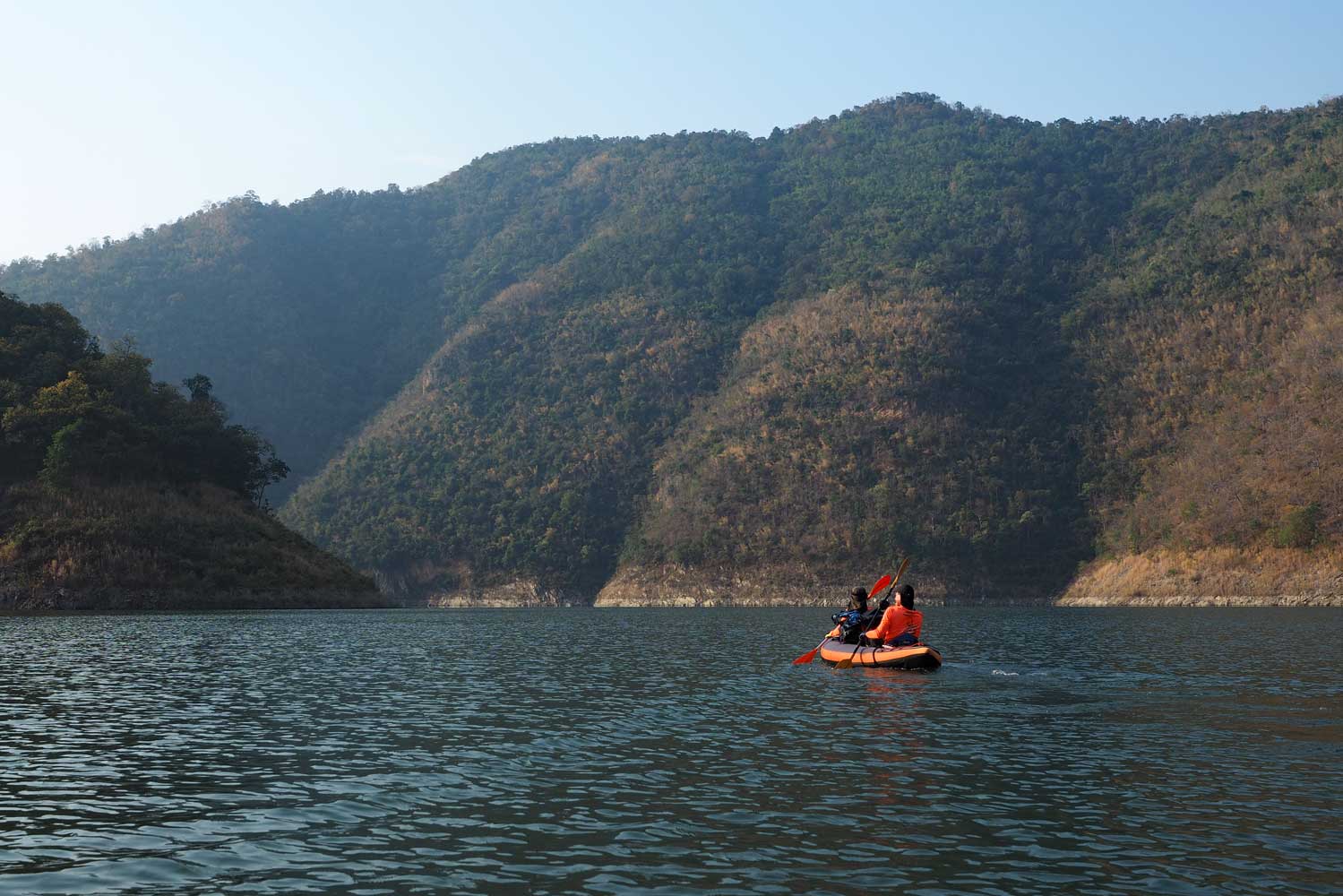
There’s a curious
line about halfway up the slope, perhaps
marking more fertile limestone soil
above and poorer granite soil below
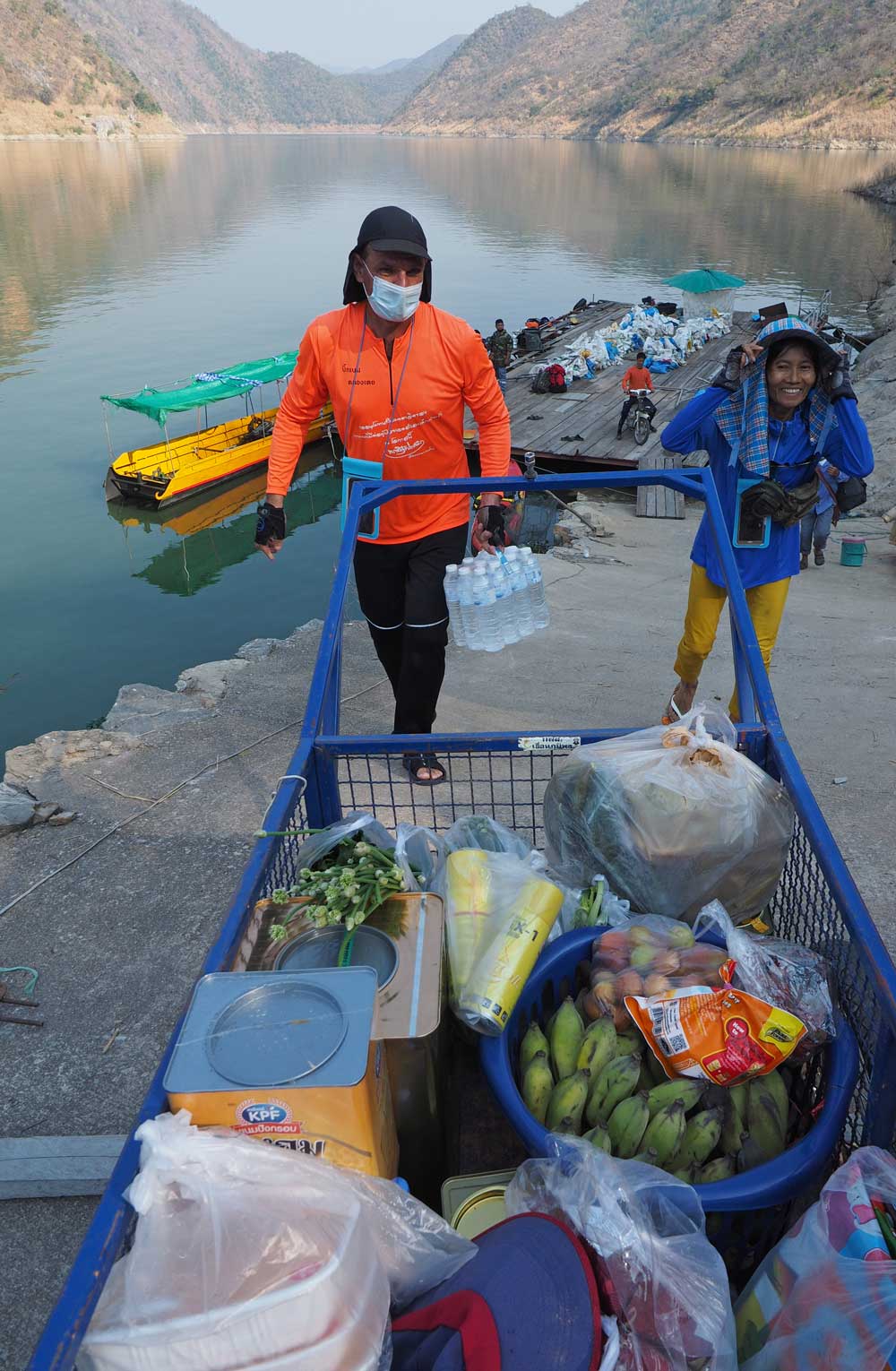
At Tham Yogi, we
help carry supplies from dock to cart, just delivered by the yellow boat.
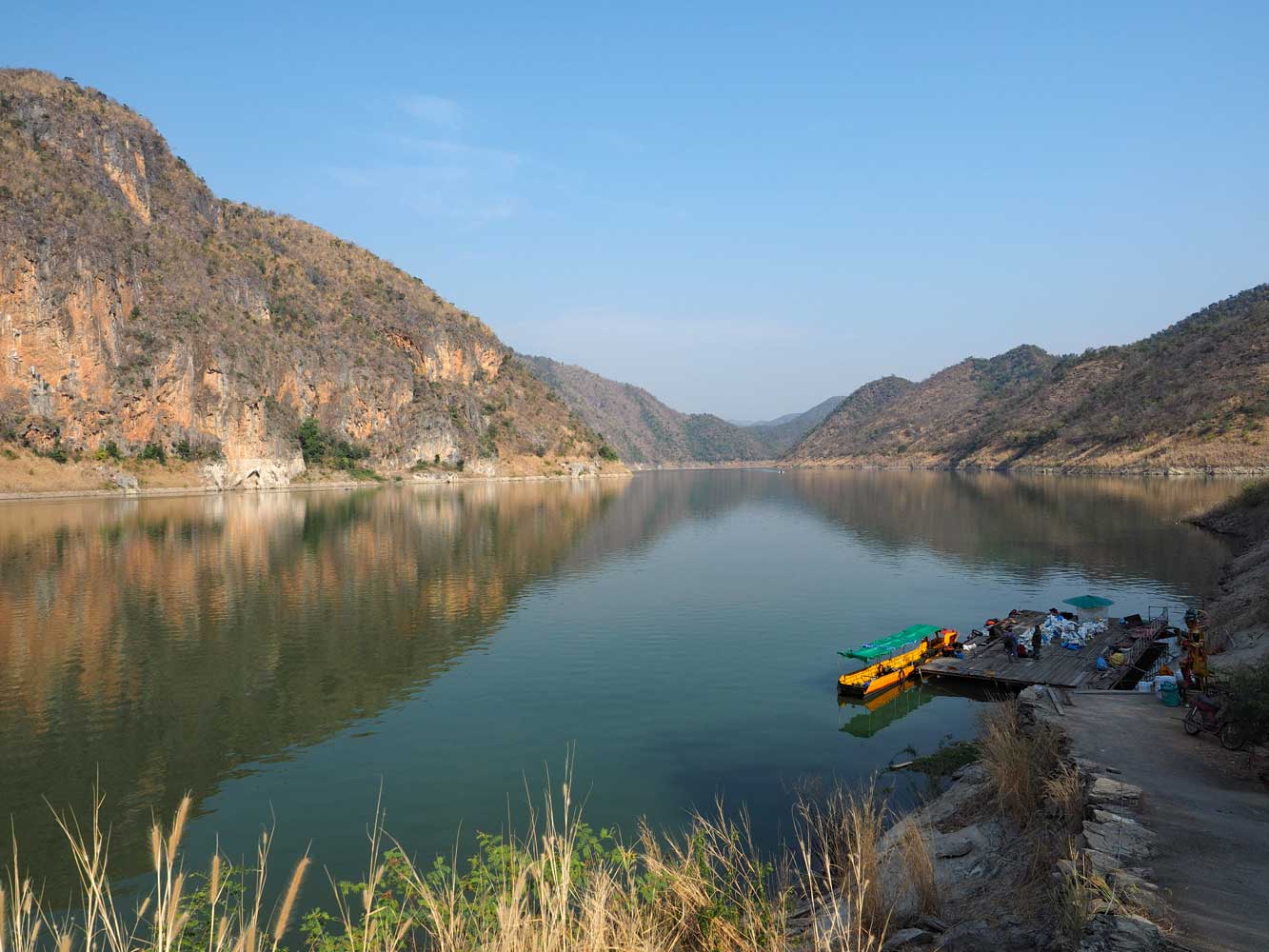
View back the
way we came this morning
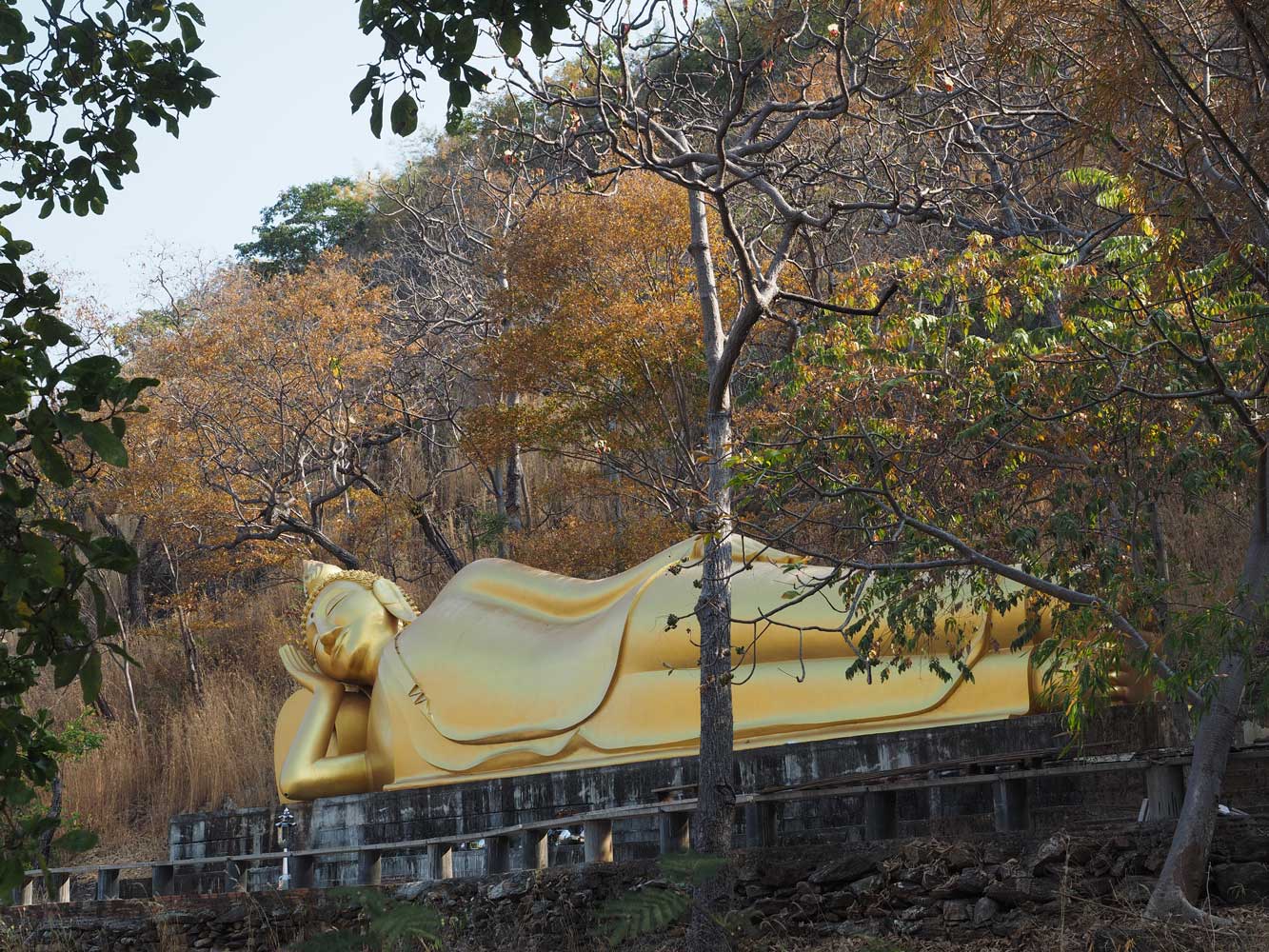
The reclining
Buddha nestles among trees.
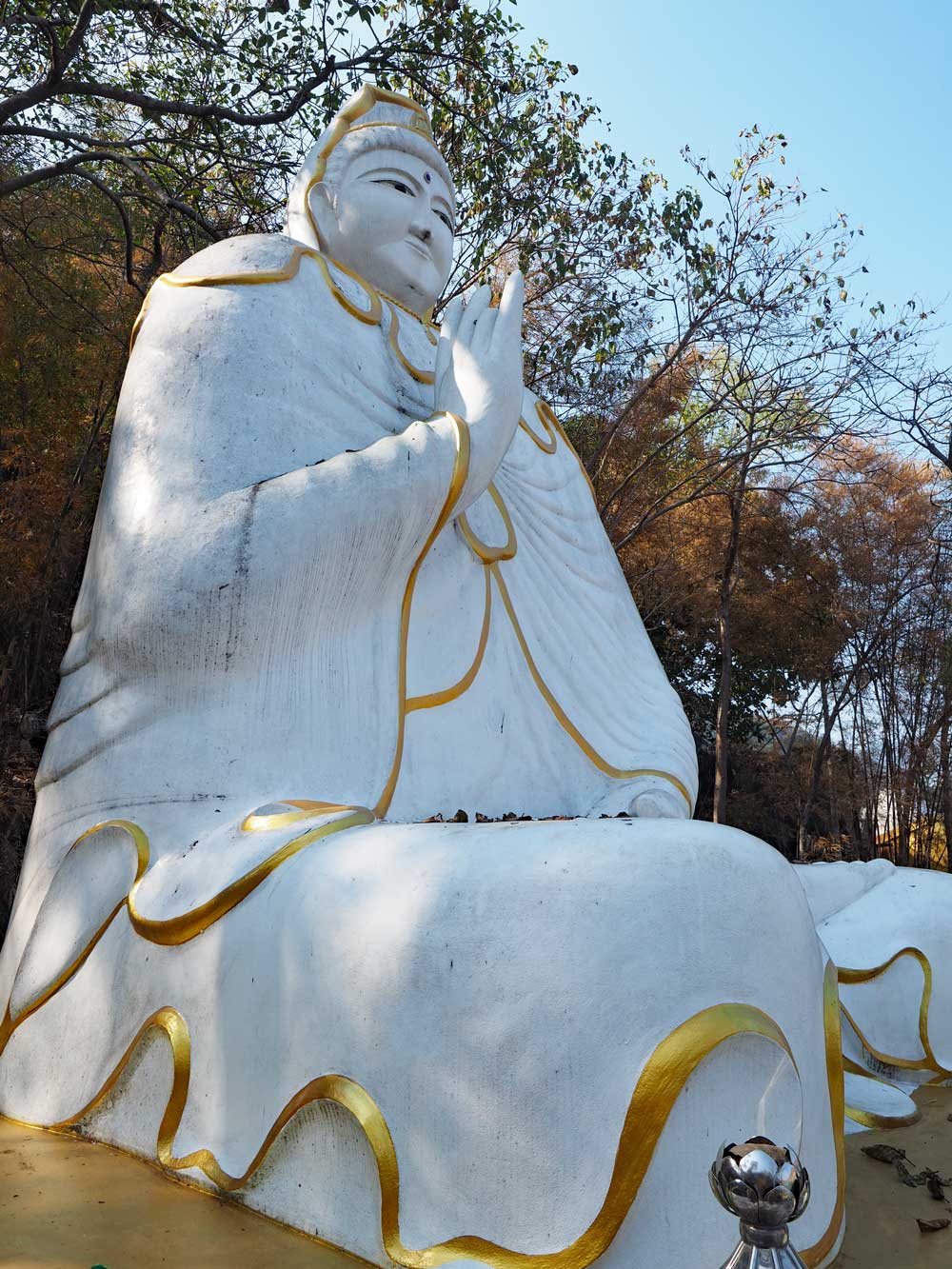
Guanyin, originally
based on the bodhisattva Avalokiteśvara, is the goddess
of mercy and
considered to be the physical embodiment of compassion.
Worshipers call upon
her in times of uncertainty, despair, and fear.
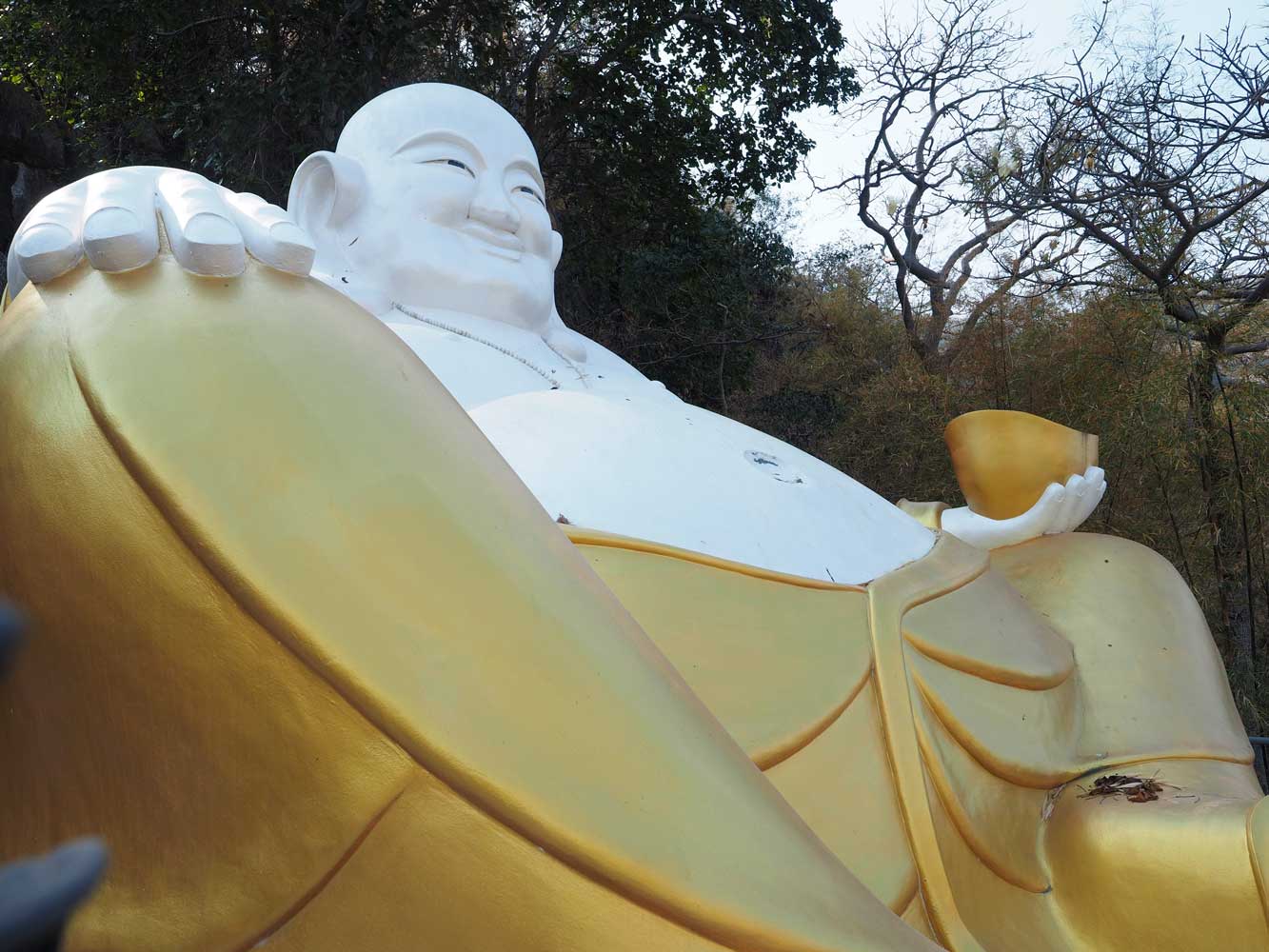
The Budai,
traditionally depicted as a fat bald monk,
represents contentment and
abundance in Chinese culture.
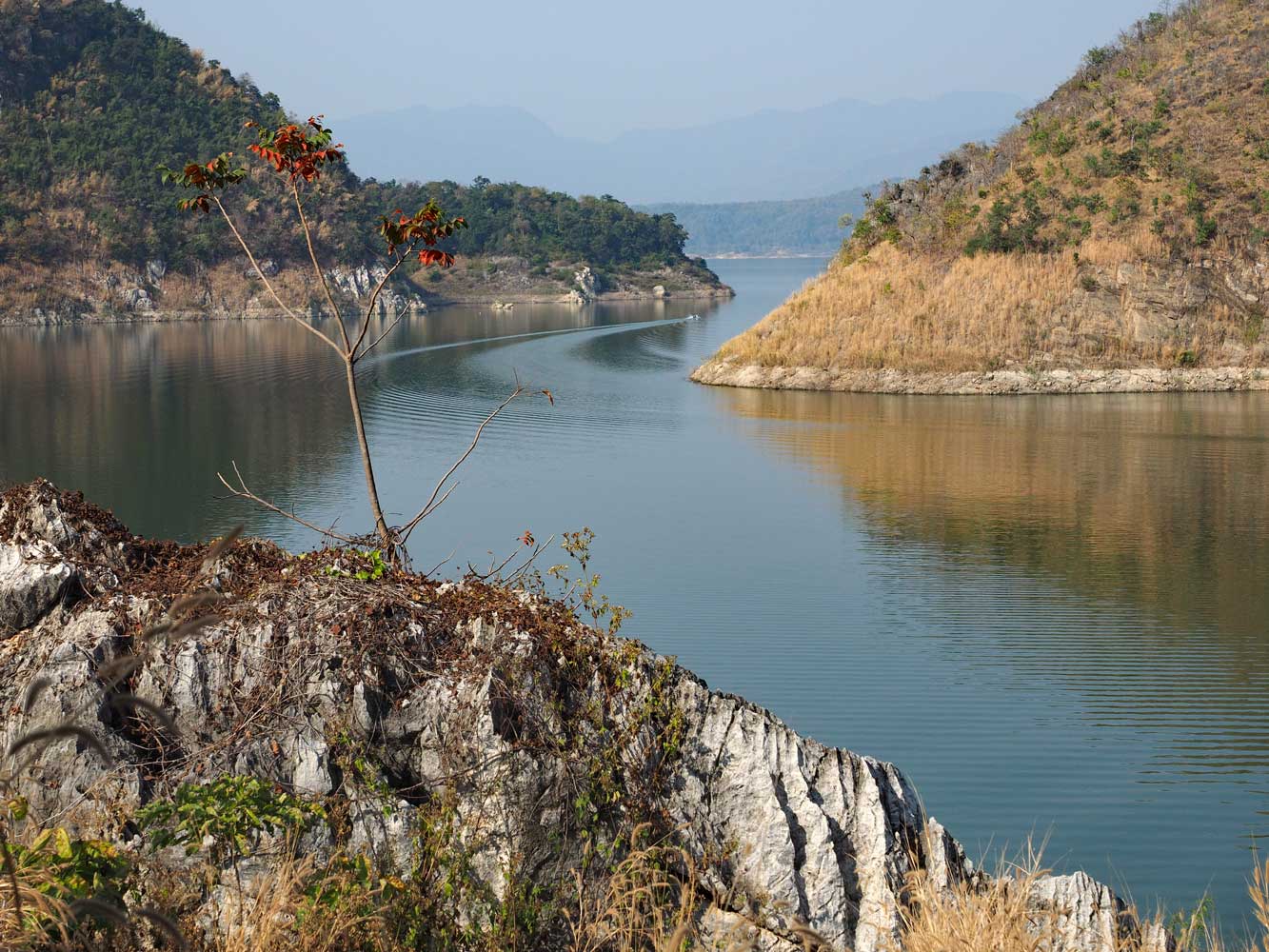
View downriver from
near the cave
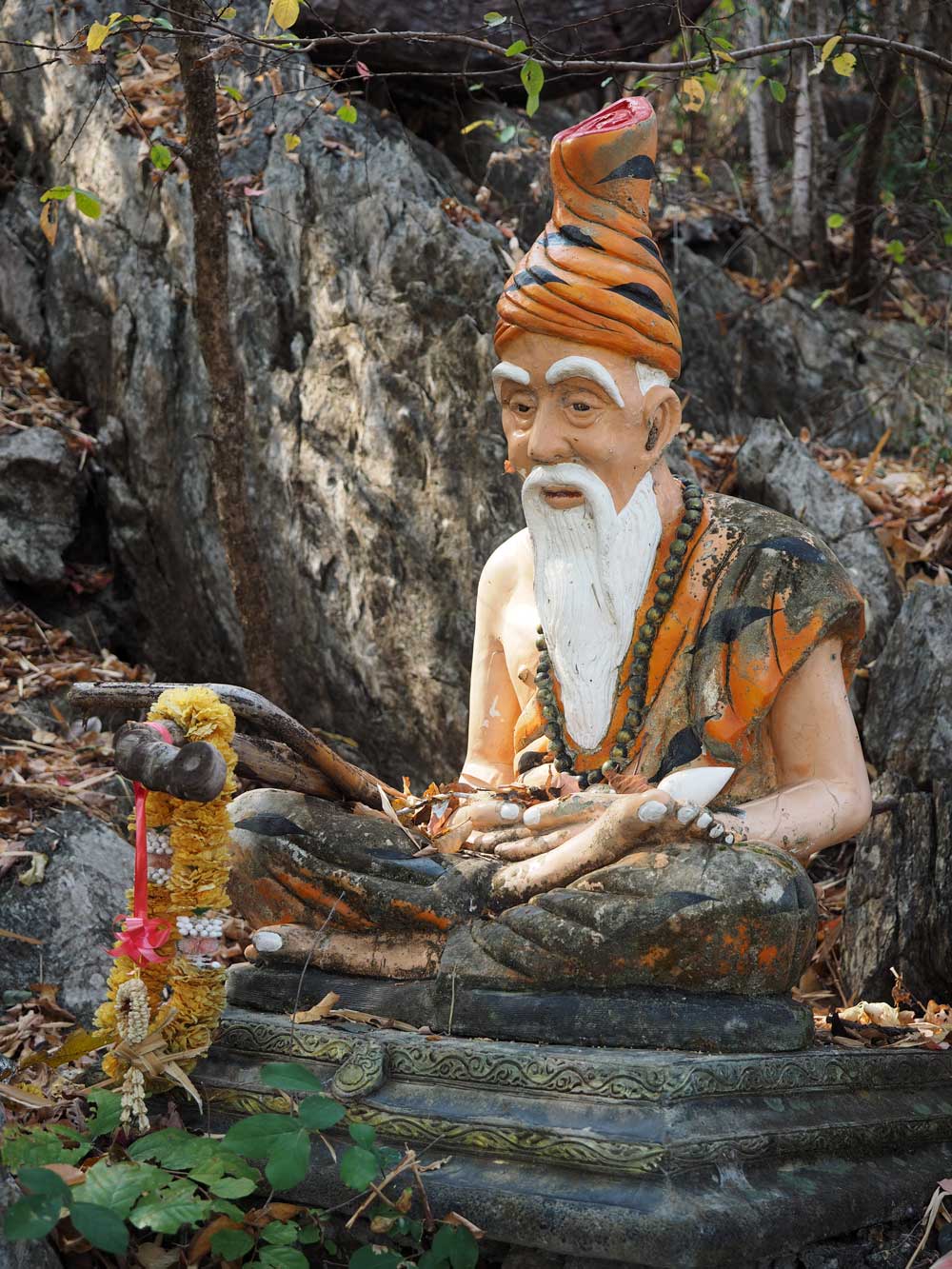
This hermit presides just outside the cave entrance.
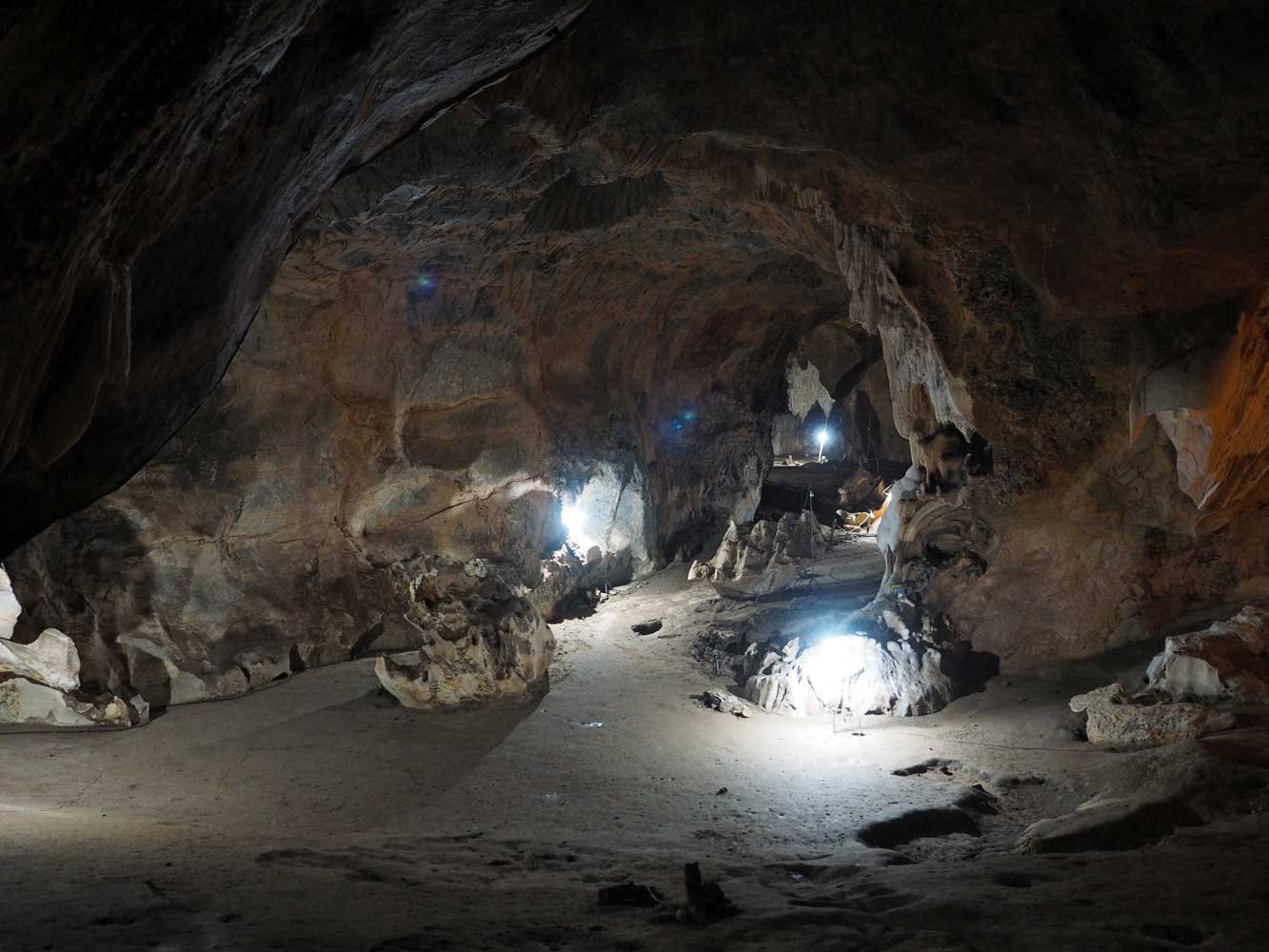
Tham Yogi
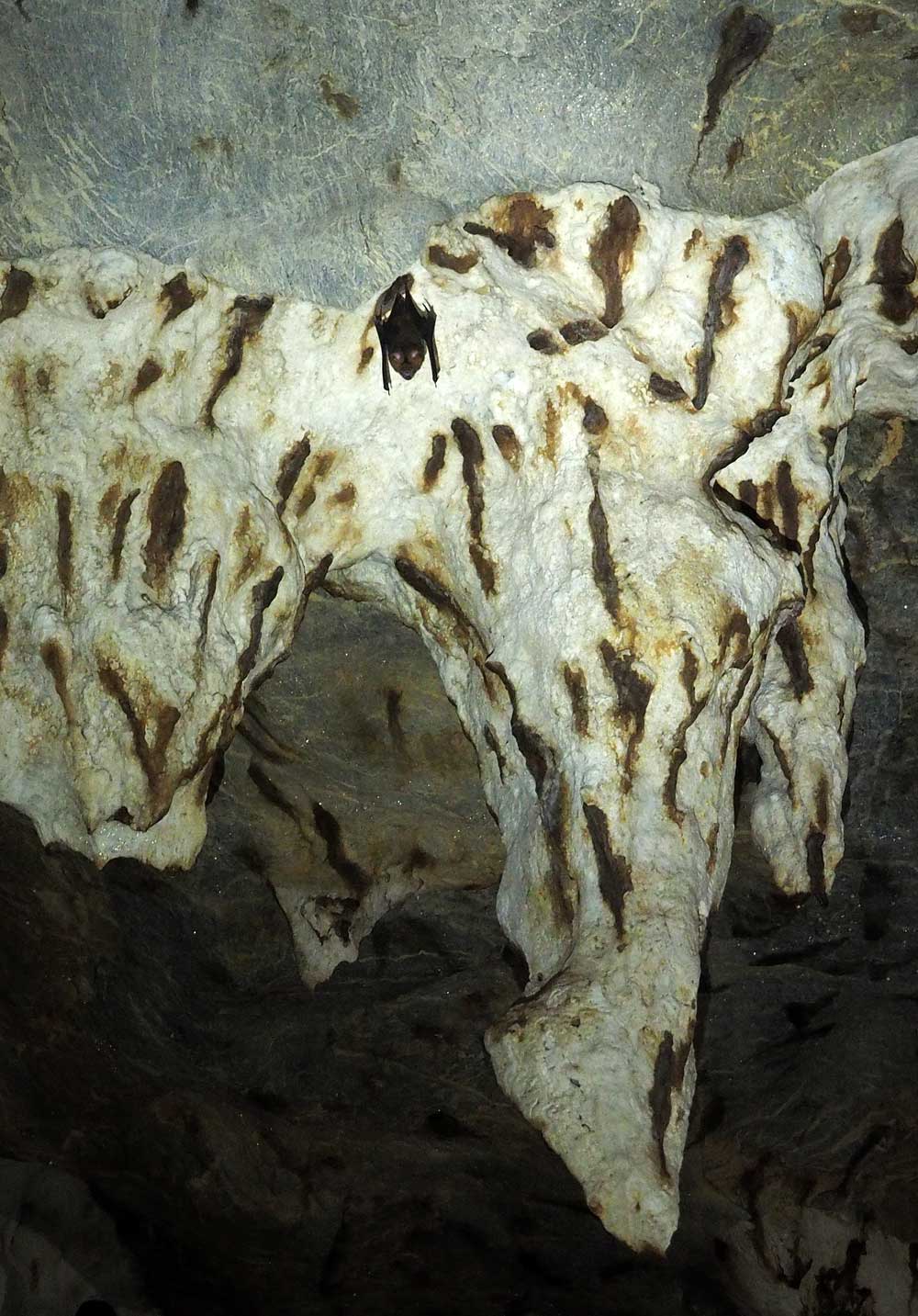
A bat inside Tham
Yogi awaits the night.
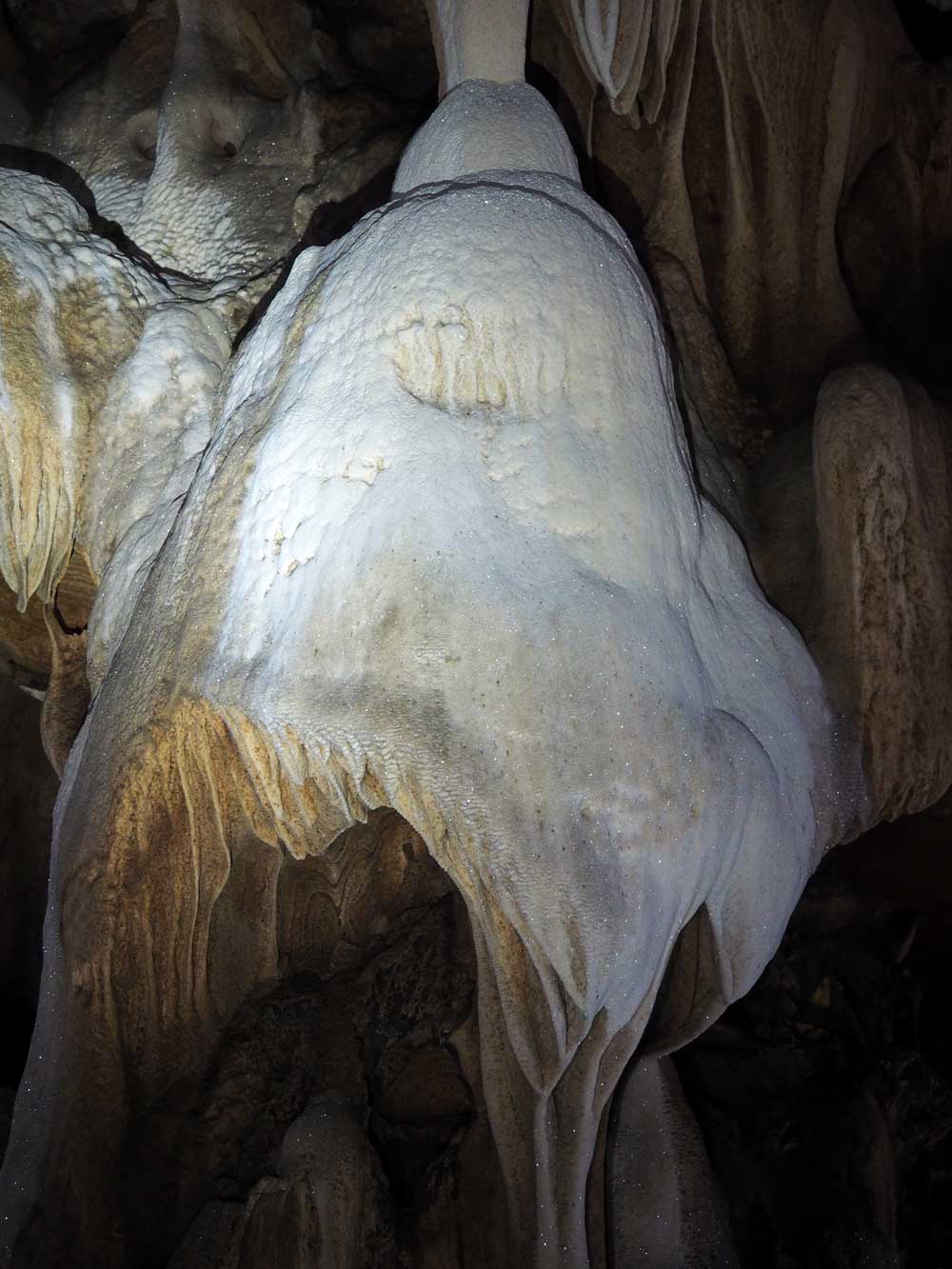
One of the pretty
flowstone features
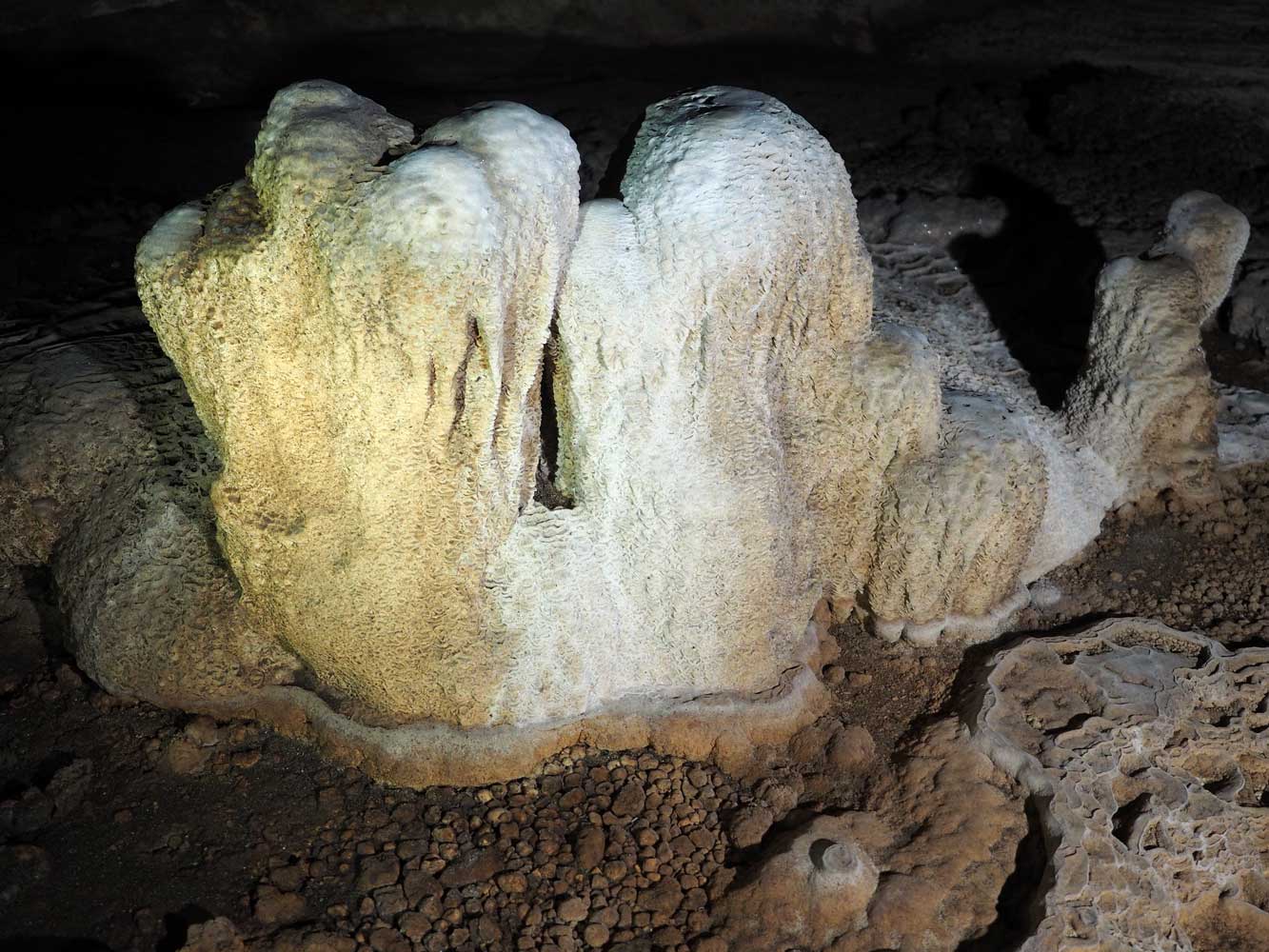
Modest stalagmites
rise from the cave floor.
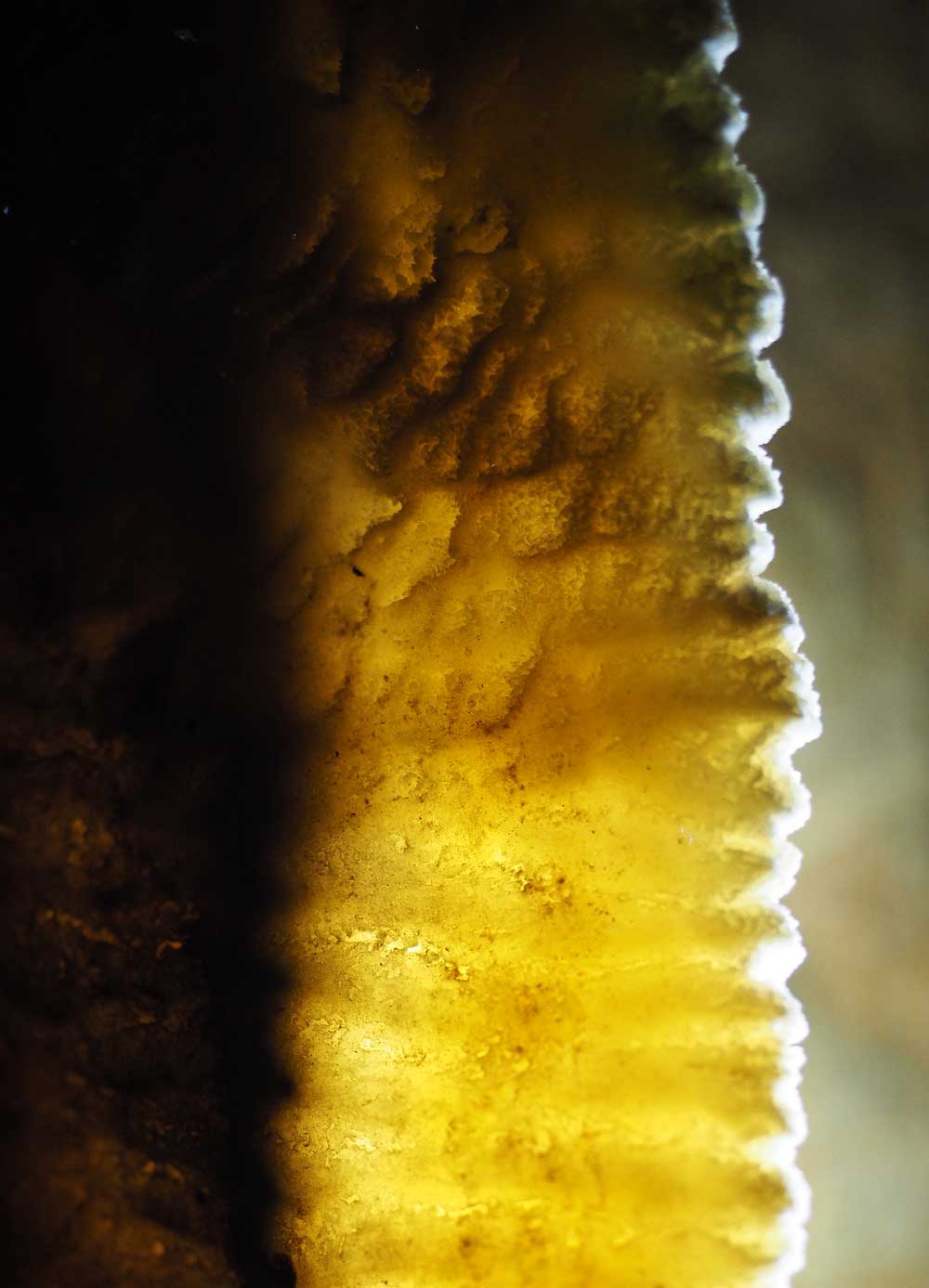
A translucent slab
of travertine
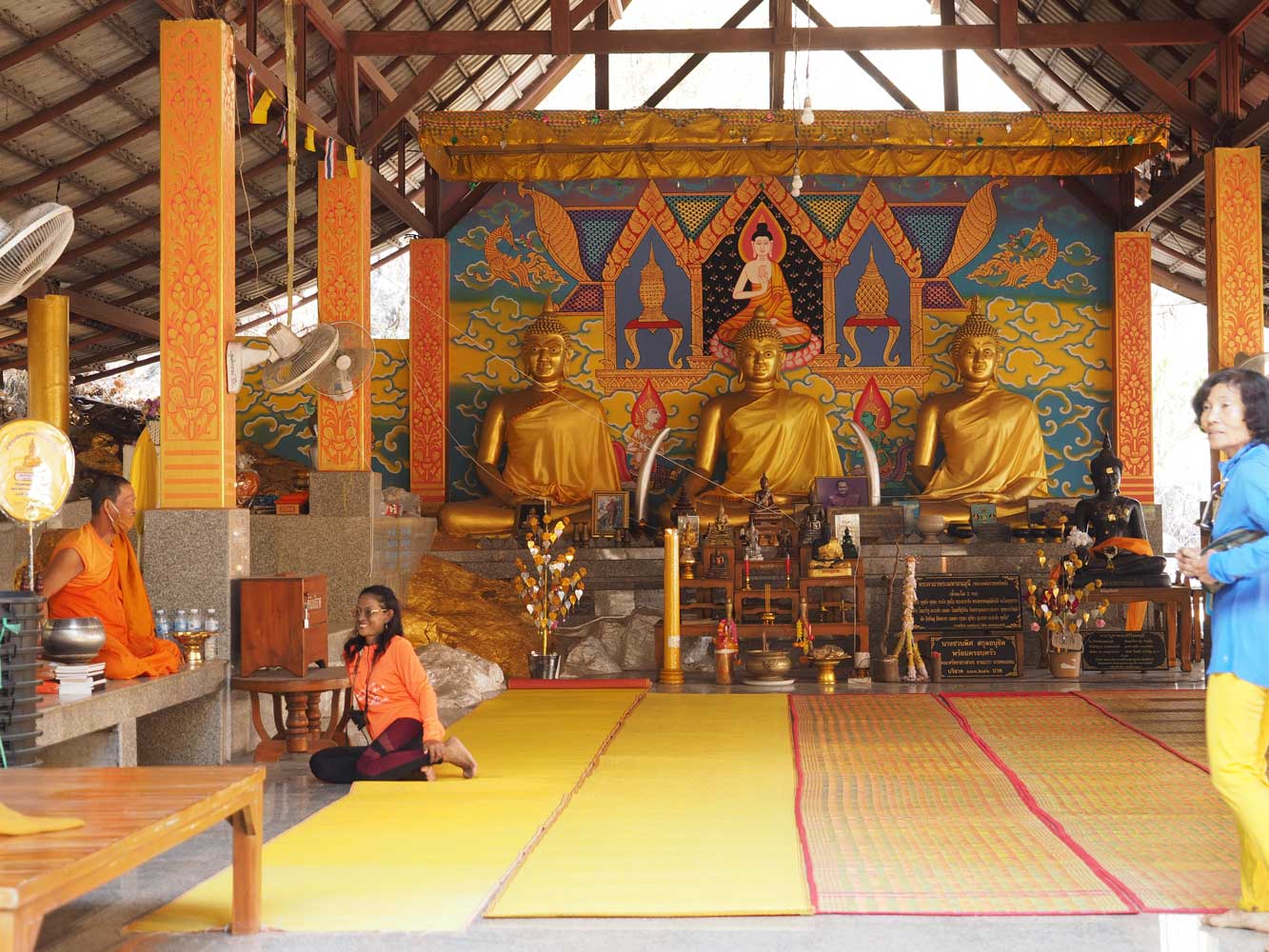
We visit a monk in the hall.
The temple
pier lacked shade, so we paddled a bit farther and found a shady spot where we
had lunch in our boats—a super-tasty mushroom Penang curry with a side of
cauliflower and rice. Ahead lay three giant water-filled basins. We crossed the
mouth of the first one, then turned west into the second, passing a large solar
array, to a good-sized raft where we camped for the night. Three of the group
slept under the stars on the raft’s upper level, but I was content to pitch my
tent on the lower floor. Our early start had gotten us in with lots of time to
relax. We had thought of walking the several kilometers to Samong Village, but
heard that it had closed to outsiders because of Covid-19. For dinner we enjoyed
a green curry, with broccoli on the side, rice, and a sweet potato-ginger
dessert.
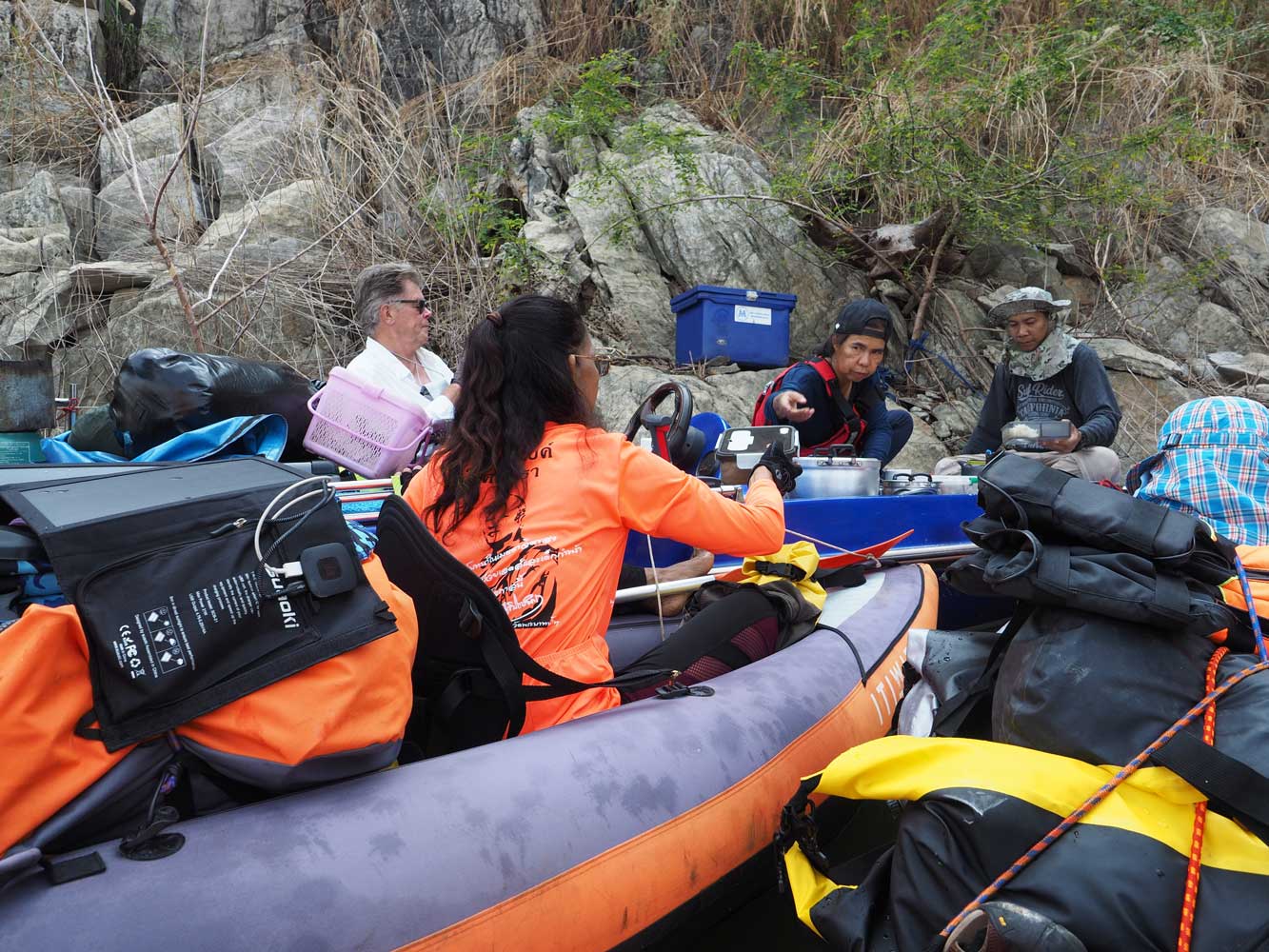
Jai and Chat
offered lunch in plastic serving boxes.
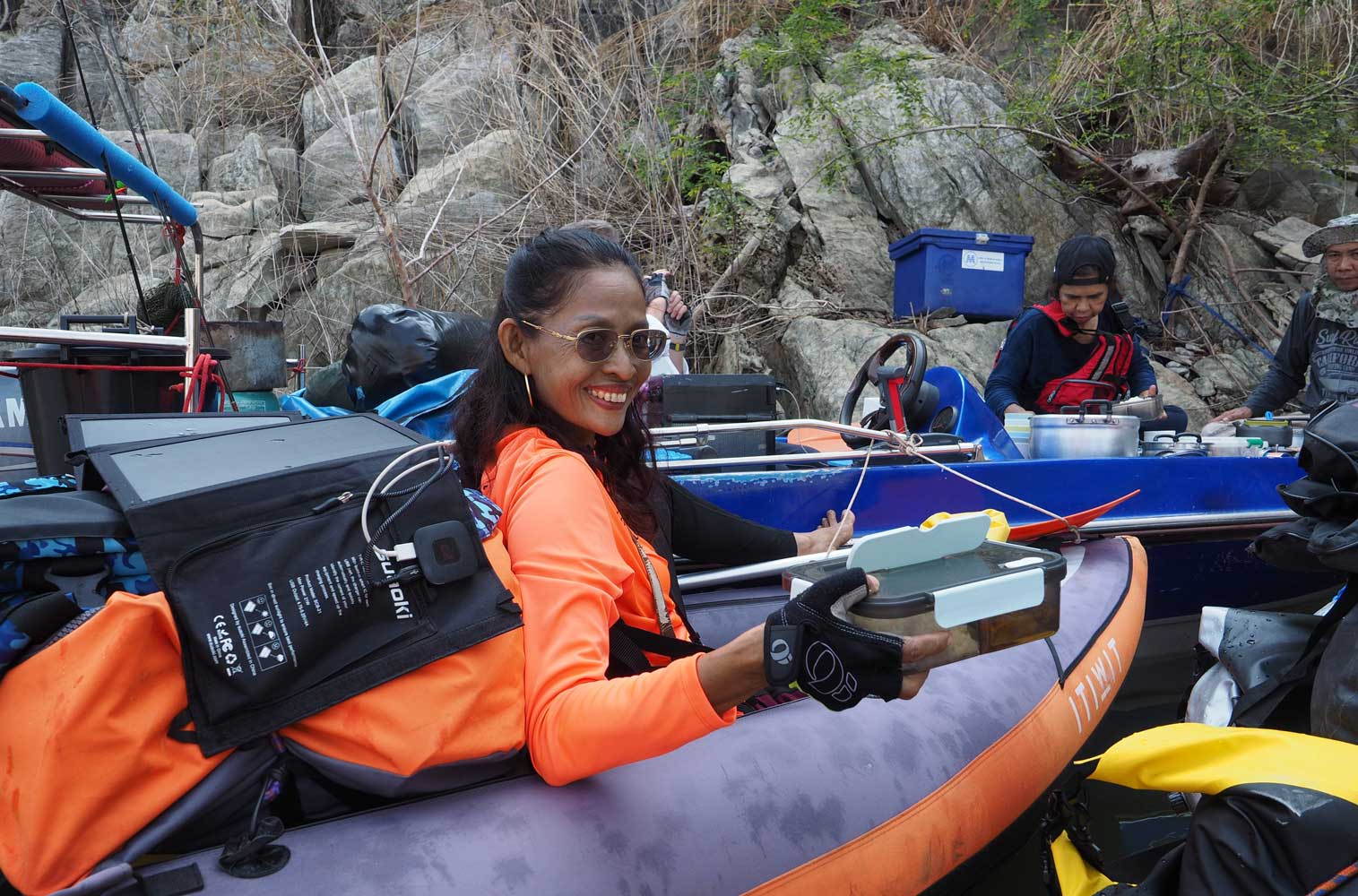
Which Areeya passes
out.
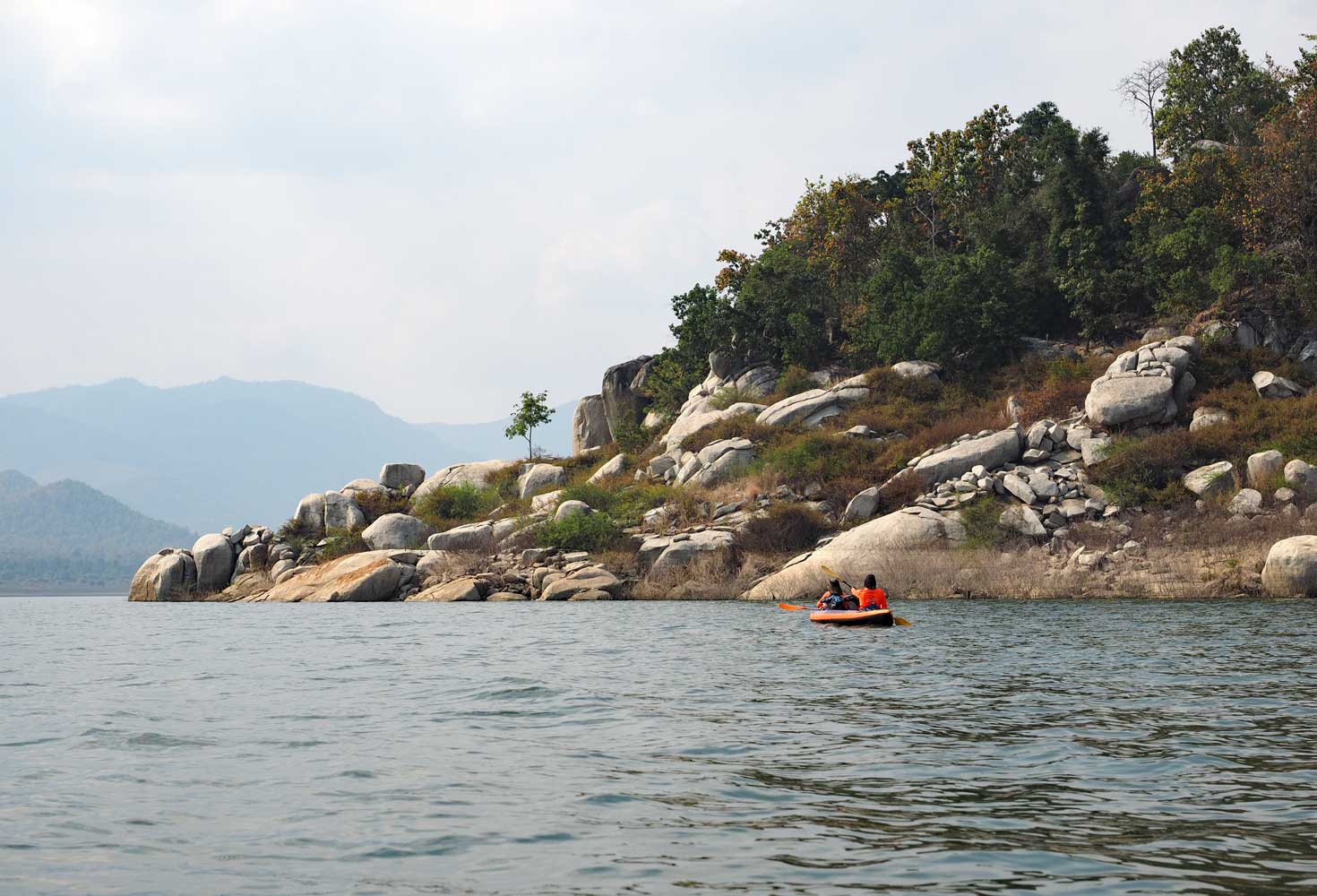
Chris
and Areeya round the corner of rounded granite boulders into the second basin
and our raft for the night.
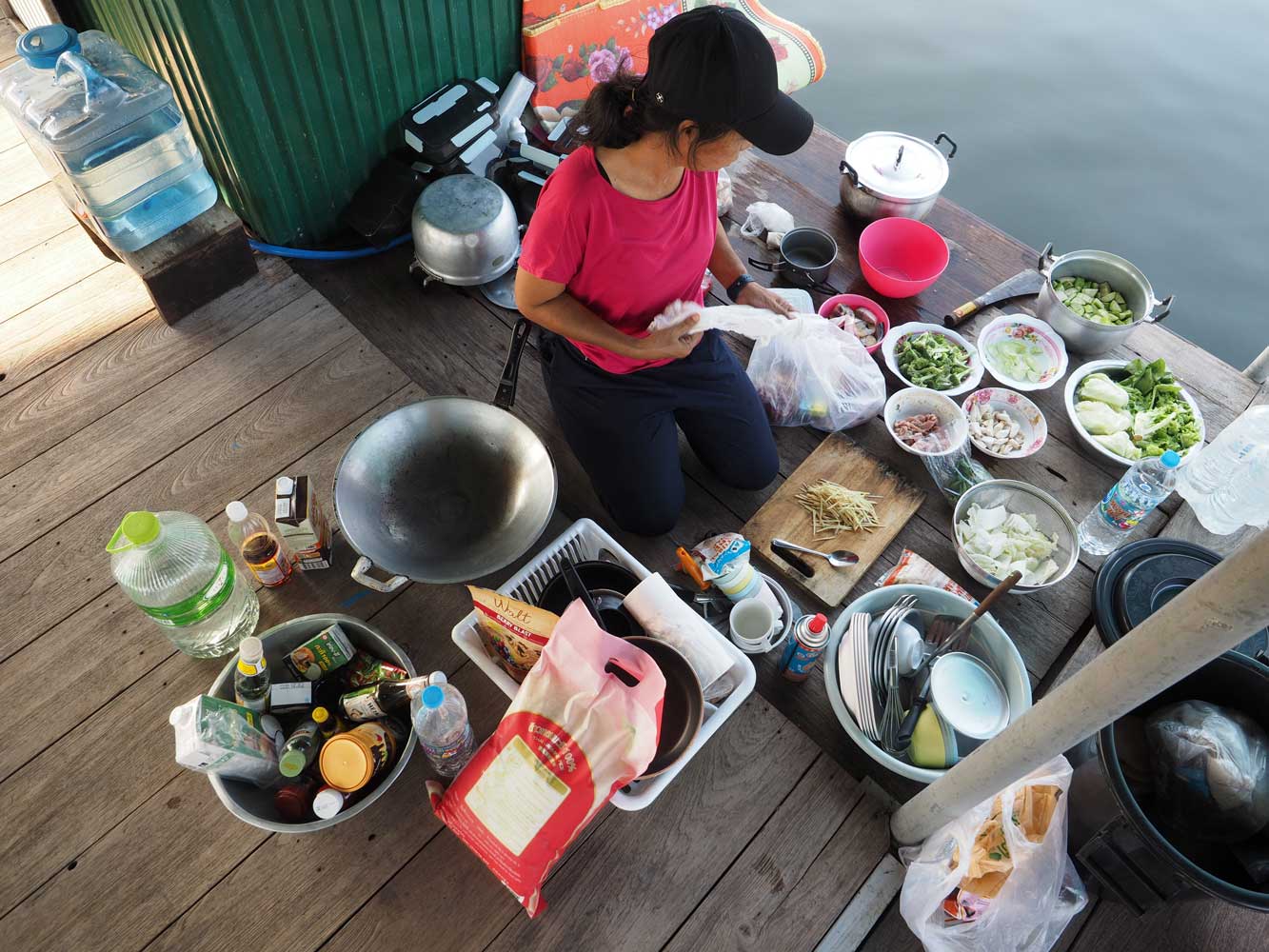
Jai lays out all
the ingredients before the cooking commences.
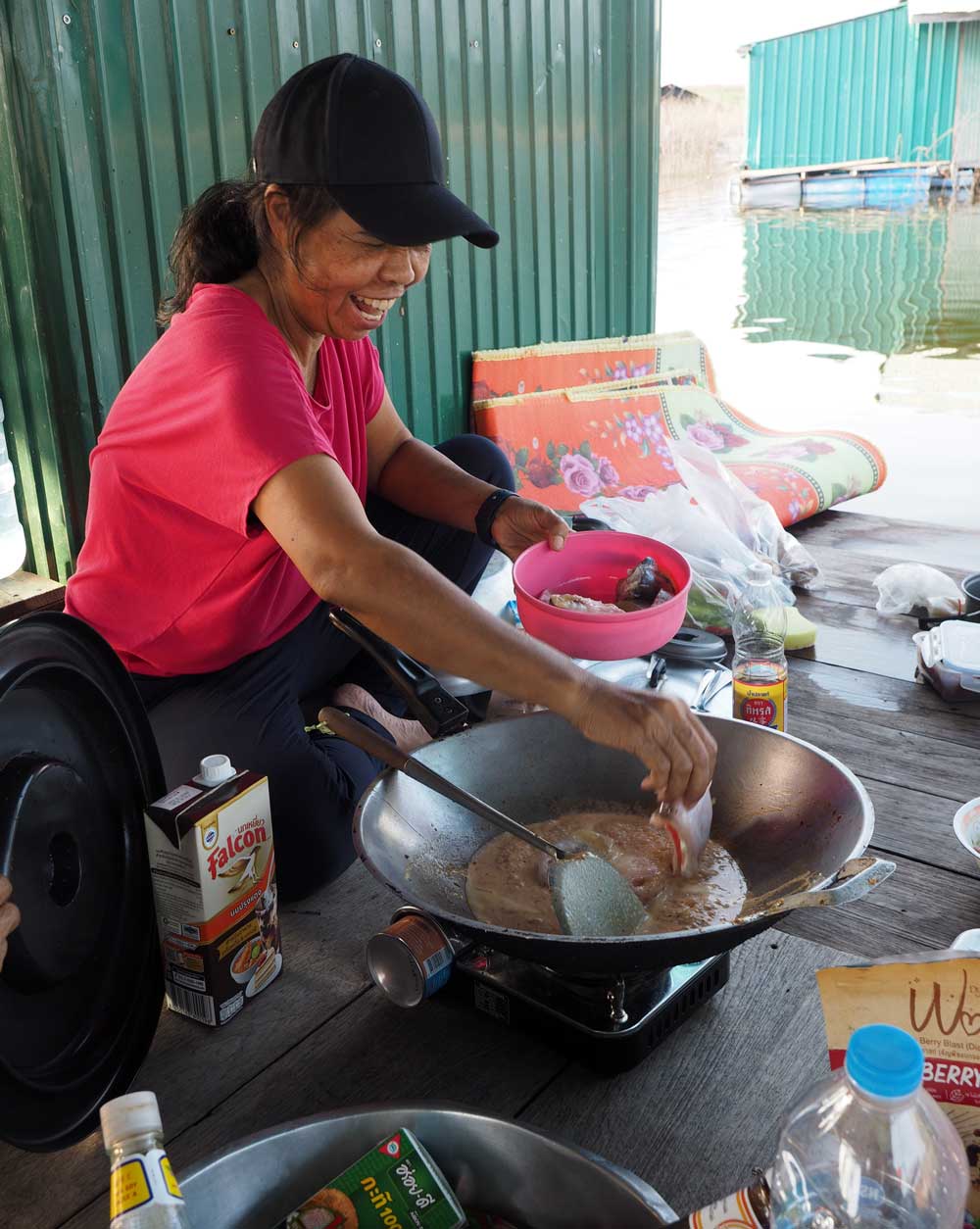
Now things heat up!
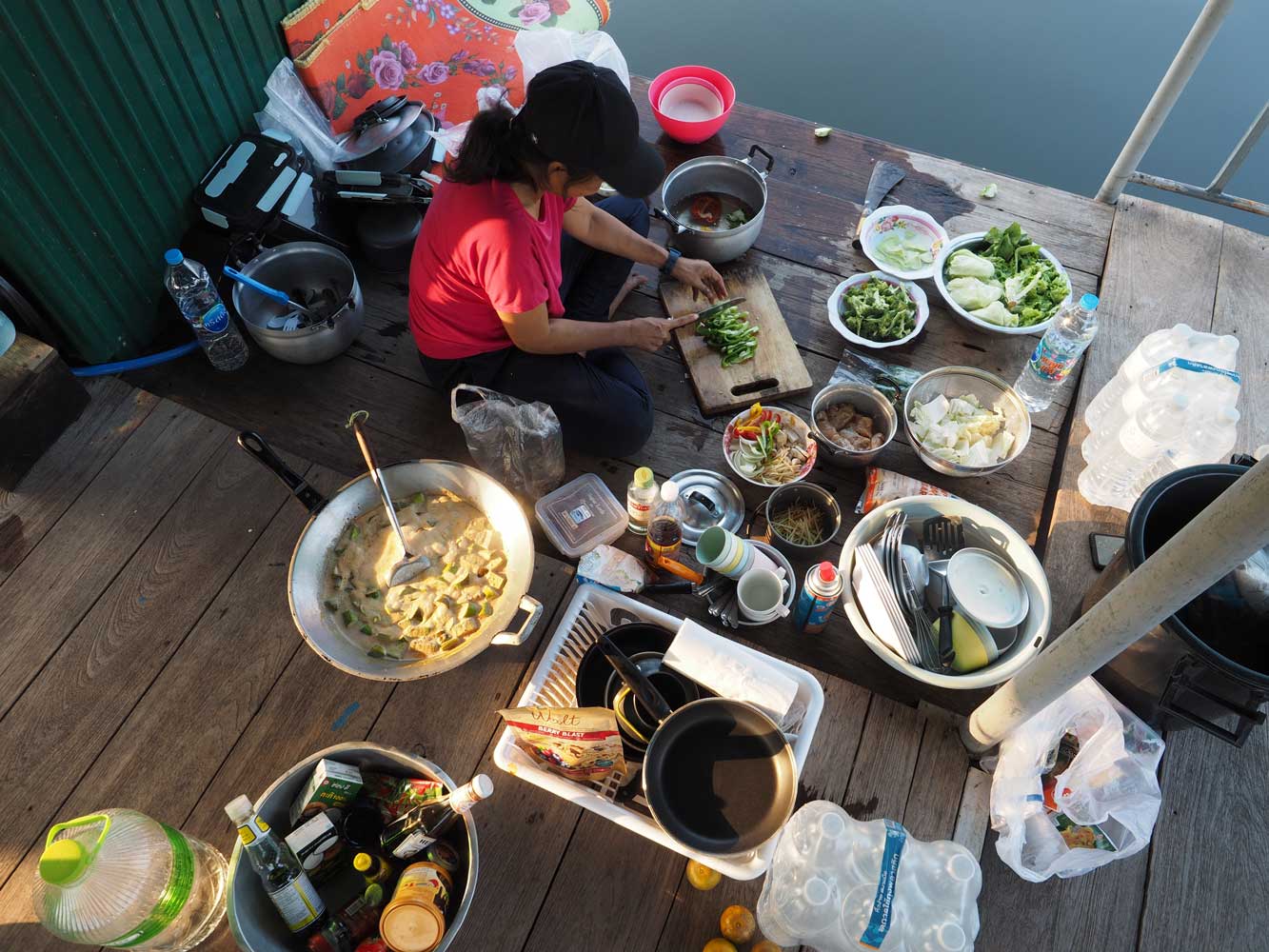
Preparing
veggies for the next course
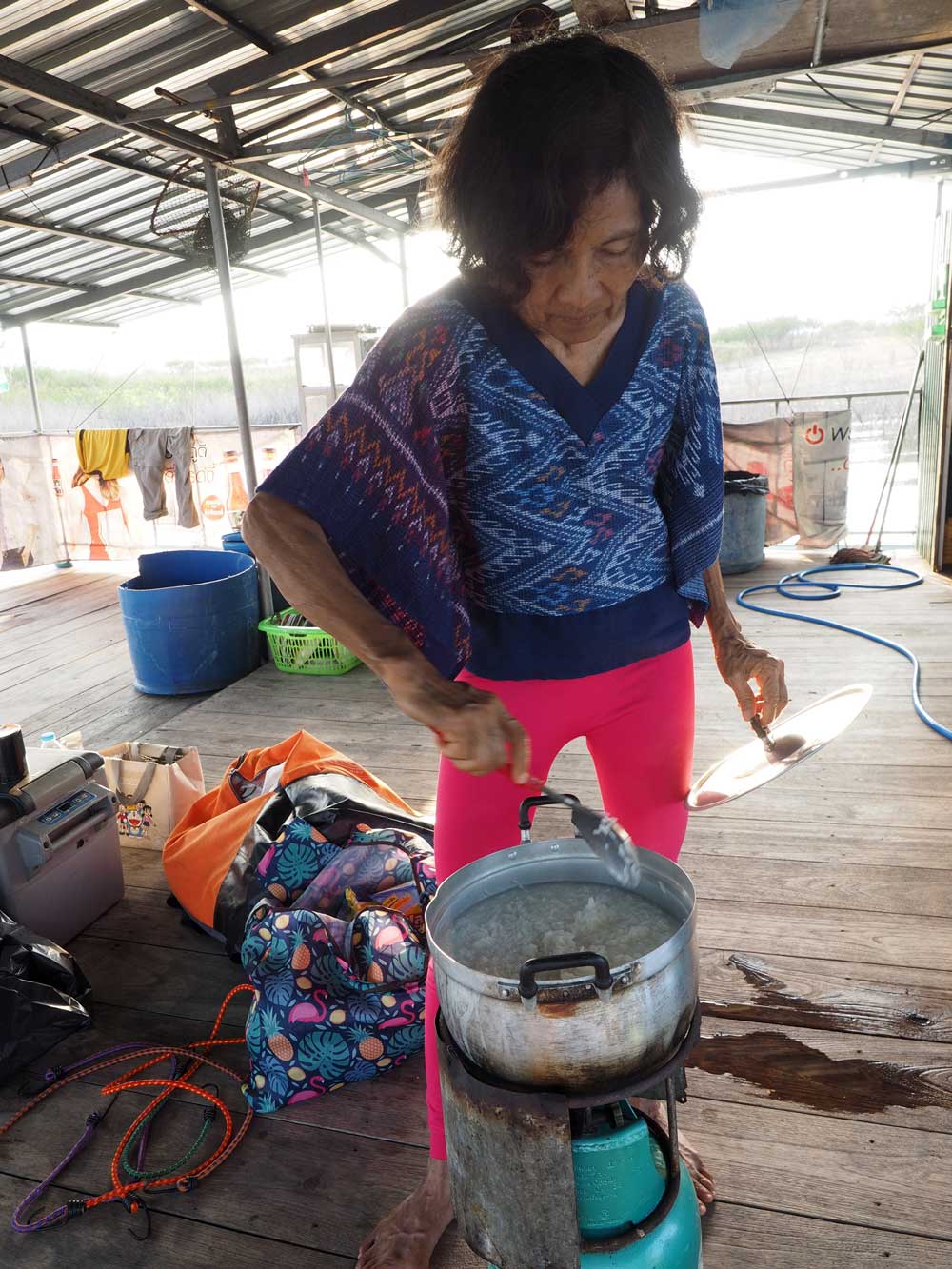
Iew looks after the
rice.
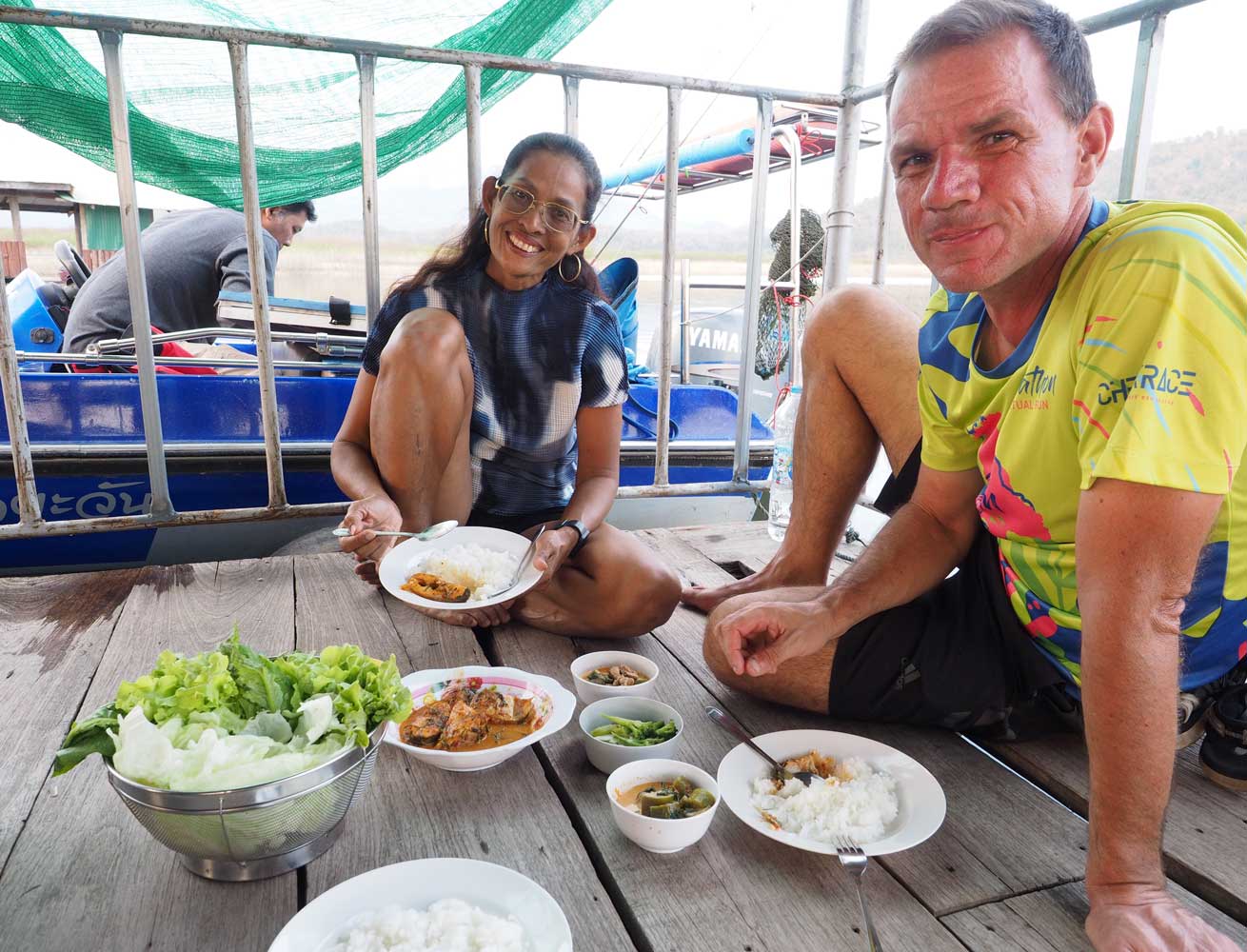
A cozy
corner for two
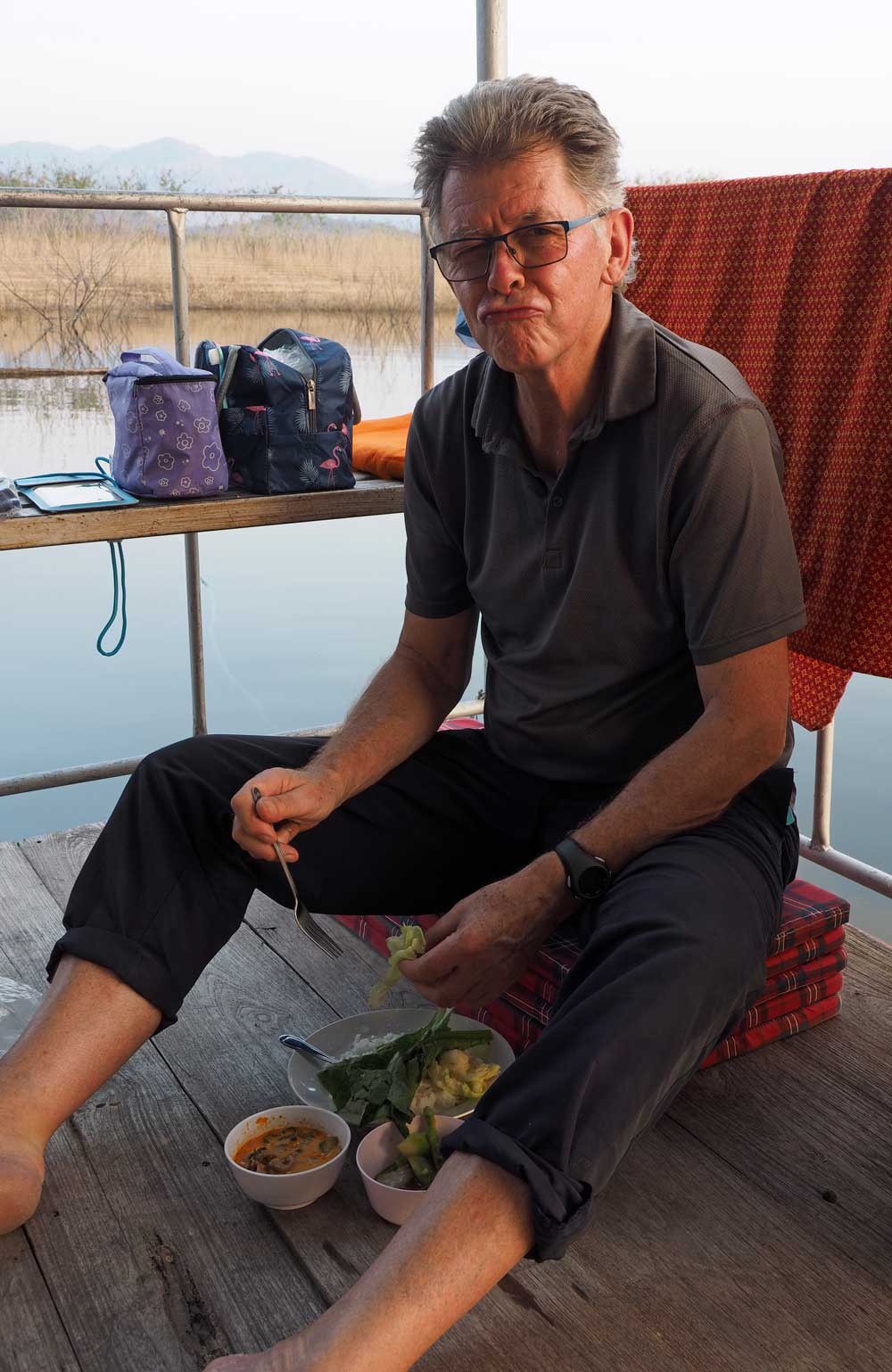
Did David hit a sour note?
On to Days 6 and 7:
Kayaking to Bhumibol Dam, then Journey Home
Back to Beginning

























